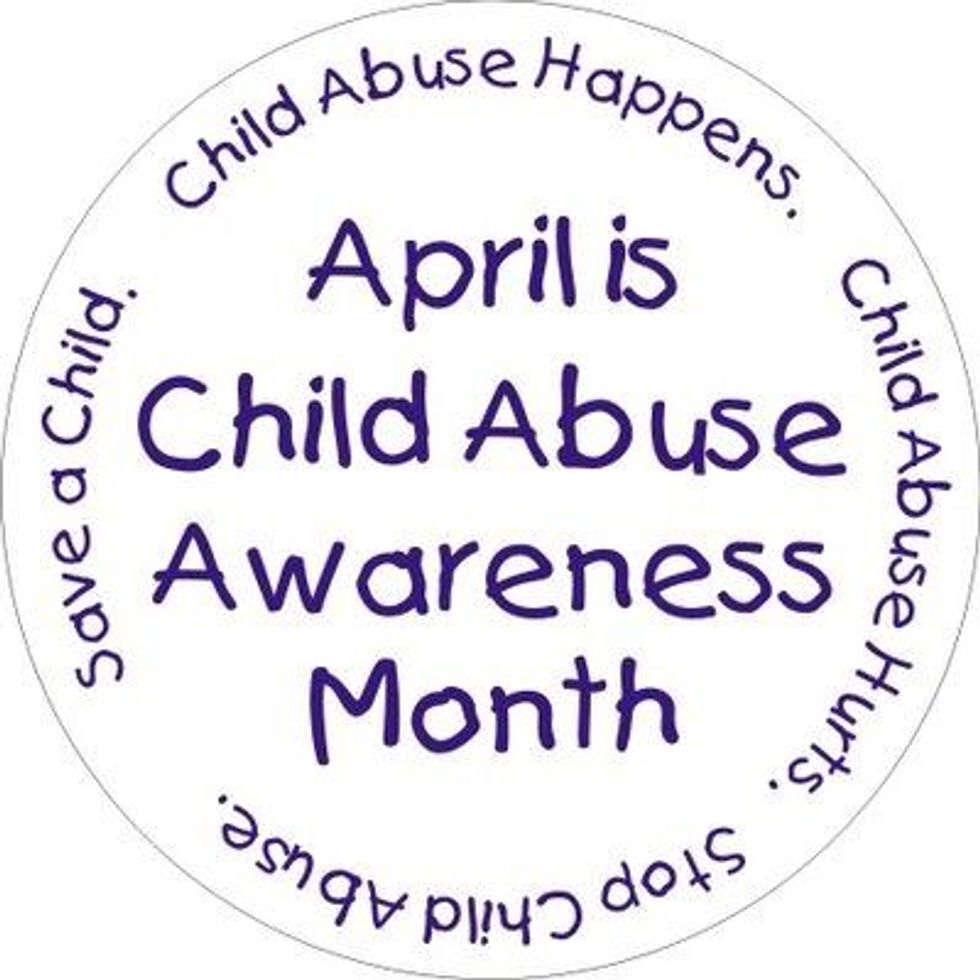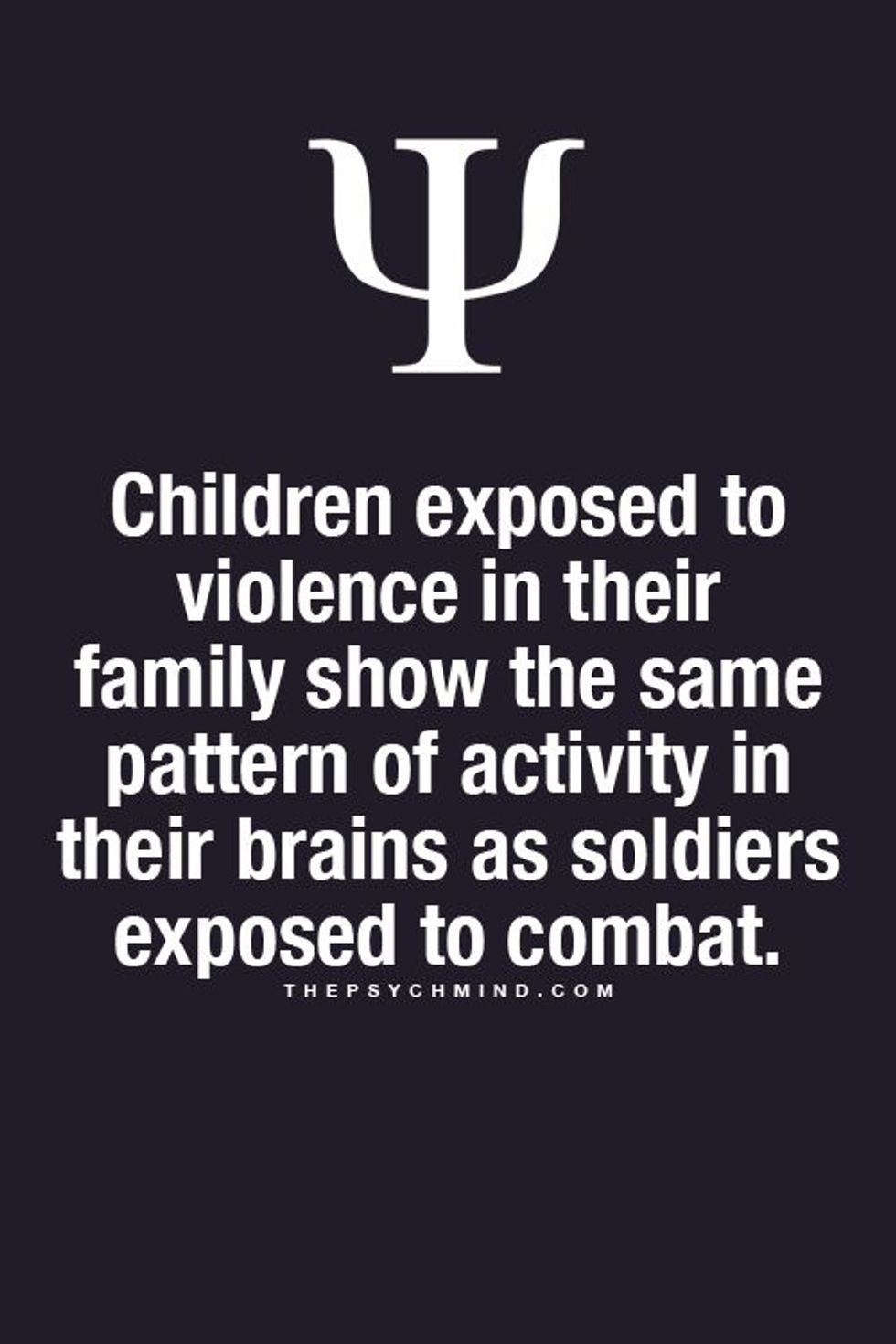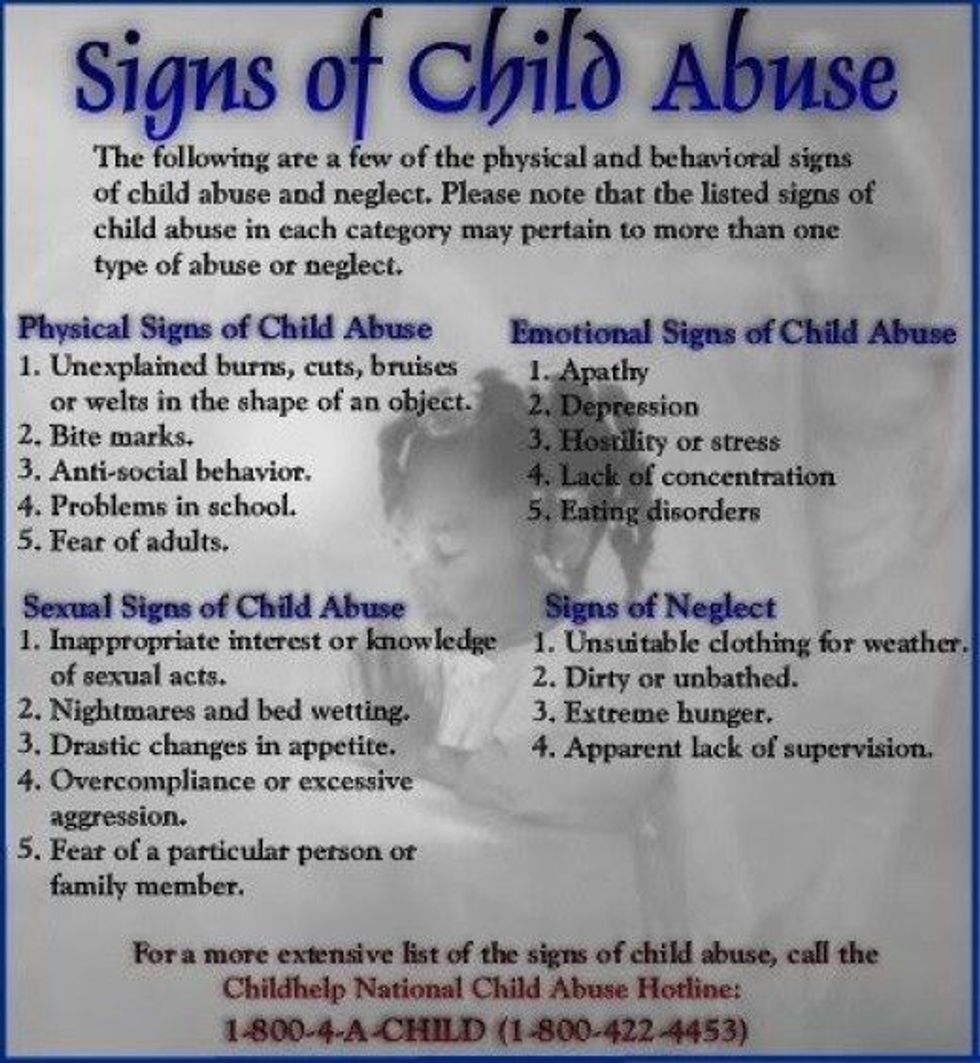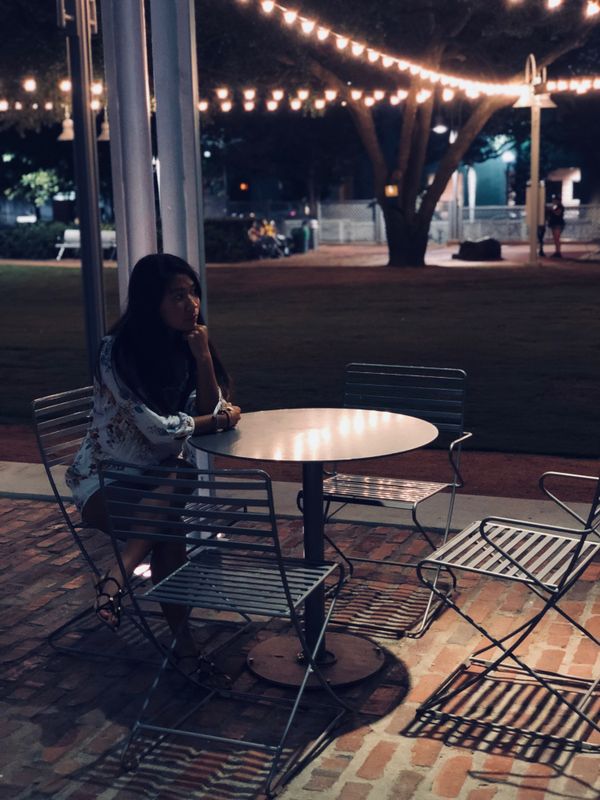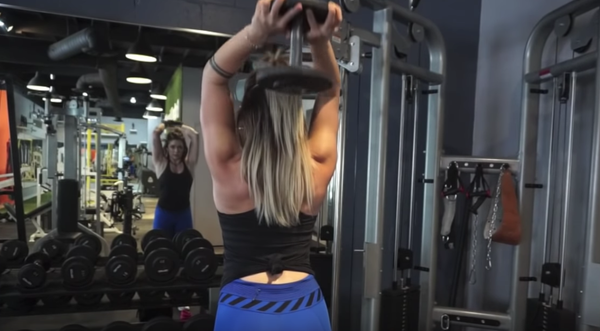Defiant, difficult, hyper, restless. Angry, outspoken, talkative, energetic. Impatient, sarcastic, loud, mischievous.
My teachers called me bright, but disruptive and easily distracted.
My brothers gave me the nickname “Evil”.
My mama said she knew from the second I was born that I was her wild child.
My dad would tell me I was a smartass, to which I would reply, “At least I’m not a dumbass.”
I wasn’t an easy child in any way. I was born with unexplainable anger and energy, and these feelings, combined with a will to do things not just my own way, but on my own, often left me in trouble. And it was apparent to everyone that I was the type of kid that needed a good spanking or whipping. My siblings rarely needed even a spanking. Just being yelled at and grounded was enough.
My dad would always ask, “Why can’t you act like your brothers?” I knew I’d pushed it too far when he would compare me to my older sister. Hearing him say things like “I don’t understand why you do these things. Your sister never acted like this” could set me straight for a bit, but all of those uncontrollable feelings were just that-something I could try to get a handle on, but it just made my inevitable outbursts that much worse.
But something would happen after those punishments with a belt or switch. It felt almost like a cathartic release. I wasn’t as angry. I was calm, sometimes even tired. As an adult, I can understand these feelings, and I now know that I need physical exertion to get rid of the energy that turns into frustration, that manifests into anger, that ends in trouble.
Looking back, I have the knowledge neither my parents or I had, even after I was diagnosed with A.D.H.D at eight. Every kid is different in their response to being reprimanded or being punished. Sometimes all it takes is a strong voice to make them cry, or a timeout, or grounding them and taking something away. But there are some of us that are wired to react in a drastically different way, and in the wrong hands, you will break us and create a cycle that will forever keep us hostage.
I remember the first time I was punished with a belt. I was four, and my brother and I were sharing a room. This alone made bedtime a challenge for everyone involved. One particular night we were extra full of ourselves and hours after our bedtime we were singing that song “Mellow Yellow” at the top of our lungs.
We’d get as far as, “They call me mellow yellow”, before falling apart with laughter. We knew we were in for it when instead of hearing our dad yell at us, we heard him coming up the stairs. I was closest to the door so I knew I’d be getting spanked first. I grabbed the books on my nightstand and put them under the covers over my legs and butt.
I thought I was so clever for about three seconds. My dad went to spank me, hit the books instead, and the next thing I knew I had a welt on the back of each leg in the shape of a line instead of a hand.
I remember the first time I was beaten with a belt. It wasn’t long after the Mellow Yellow incident. I can’t remember what led to it, or why it happened. I do remember with perfect clarity that the person whipping that belt was not my father. My brothers and I were just getting to that age where you start to understand certain things about your parents. And we were beginning to recognize that our father could turn on a dime and be the reason you couldn’t move the next day.
And that it didn’t matter how quiet you kept, how well behaved you were, or how invisible you made yourself-you weren’t safe. It didn’t matter if you deserved a punishment, you were getting more than that. And from an extremely young age, I knew when I was being punished, and I knew when I didn’t deserve what was happening to me. I knew the difference.
I can’t speak for others who have lived this way, but having this knowledge was no comfort at all. Sometimes it would keep me from getting a longer beating, and I would tell myself that calmer I was, the faster it would be over. Other times, it was like gasoline on my anger.
It didn’t matter I was a tiny seven-year-old, I would scream and yell things at my dad, kick him and fight back, even though it only took seconds for him to overpower me, and made the beating worse. In some twisted way, knowing I could make him that much angrier than he already was made me feel powerful, and gave me a small sense of satisfaction.
April is the month of Child Abuse Awareness.
There are over 3 million reports of child abuse in the U.S. every year. My brothers and I were a part of that statistic on more than one occasion, yet we were never removed from our home permanently. We had “extended stays” with friends and relatives until things were “cleared up”. And every single time, we would come home and things would go back to normal. As we got older, normal went from a few months to a few weeks, until the line was no longer visible.
As we got older, we knew the right answers to give, the right way to act, and the right clothes to wear to convince CPS, teachers, neighbors, school counselors, and therapists that we were safe. Even though we weren’t, we understood the consequences of what would happen if our dad was ever actually taken in for the things he did to his family. And it wouldn’t be pretty.
Here’s what you need to understand about abuse: each abuser is different. Some are smarter than others, some have certain advantages, and some know how to play the game. For our father, it was all of these. As a retired State Trooper and a Vietnam Veteran, all he had to do was mention his services and he could walk away with a slap on the wrist.
He claimed PTSD was the reason for his latest “outburst” and that he couldn’t remember anything he did to us, despite the evidence on each of our bodies. Yes, he did have PTSD, but what outsiders couldn’t see where all the pain pills he was swallowing. They changed his personality, and it was always different. Sometimes he resembled a drunk, falling all over the place, and ending up in the hospital.
He would take the car keys, and drive while he was so messed up, he’d be falling asleep behind the wheel. To this day, I have never been as scared as I was during those car rides.
He always got away so easily, though. I can’t tell you how many anger management classes he took, or how many times we had to attend family therapy. Most of the time he was just sent to the VA Hospital, where he was getting the pills in the first place. Bullshit, right? Well here’s where it gets complicated.
Throwing pills at disabled veterans was more common than most of you could ever fathom. This was the solution our dad was given, and though he very well could’ve handled things much differently, I know I am in no place to judge him. Still, this doesn’t change my anger over the way he treated us. That, he could’ve changed.
Another complication was the fact that we were Catholics, and my mama taught at a Catholic school. It would have been perfectly acceptable for her to be fired from her job if she divorced. In addition to this, my father, being a disabled Vet, could claim spousal neglect, and my mom would still be stuck supporting a man that couldn’t hold down a job. I don’t know if this was true or not, but I do know this-our mama did what she thought she had to do to keep things moving forward for us. The threats he repeated stuck in all of our heads, and we were too scared to doubt him, too scared of the judgment and embarrassment of what was happening to us.
Statistics say that physical abuse changes a child’s perspective. At incredibly young ages, my brothers and I were well aware of keeping up appearances. We never, not once, blamed our mom for staying in an abusive relationship. We understood it was as much for her as it was for us. We knew the things we were giving up, just so we could survive until we were at a safer age, making sure we were able to stay together, stay a family.
Looking back, it’s still so easy to get angry at the things we were robbed of. There was never enough money. We went without food, electricity, heat, and water. We never had sleepovers or birthday parties. Our dad was just too unpredictable to have friends over. As teens, things changed. The public school introduced us to a new set of peers. Suddenly, we weren’t the “that family”, the one so obviously different.
And sadly, our shitty situation didn’t even come close to those of others. And just as sad, my brothers and I finally felt accepted and felt comfortable around our classmates-all because they came from abusive homes. It was no longer a shameful secret. It was normal.
And it’s still this way. Being unspoken for, kids from abused homes will latch onto those who understand. And two broken kids become two broken adults, always seeking out the environment they’ve always known-chaos, unpredictability, and abuse. We find it hard to connect with others who have never felt ashamed, who have never seen the things we’ve seen.
Have you ever had to push a dresser in front of your bedroom door for your own safety? And then after that, did you ever have to climb out your window, crawl across your porch roof, and then climb into your mom’s bedroom window so that you could help block her bedroom door so that she was safe, too? Did you and your brothers take turns making sure someone was always home with your mom when your dad became that evil monster so that if he went too far, one of you could dial 911?
This was typical behavior in our house by the time I was in middle school. I dated guys who were as messed up as I was, and it wasn’t an act of rebellion. It was because they didn’t expect me to take them home and meet my family, or even expect to still be together the next week. I didn’t care how messed up they were, and they didn’t judge my life. It was a silent understanding that made for horrible relationships.
This won’t be the outcome for every single situation, but that’s not the point. Any adult harboring the abused child version of themselves inside is cracked in some way. What’s worse, it is far too easy for them to continue the abuse towards their own children. An estimated one-third of children who are subjected to child abuse and neglect go on to repeat patterns of abusive parenting towards their own children.
Those who were once victims begin to create victims. They begin the same vicious cycle because no one rescued them. If you aren’t sure of the signs of child abuse or suspect a child is being abused, this can help you. Knowing the difference between the disciplined child and the abused child could be lifesaving.
The following links can also be helpful


